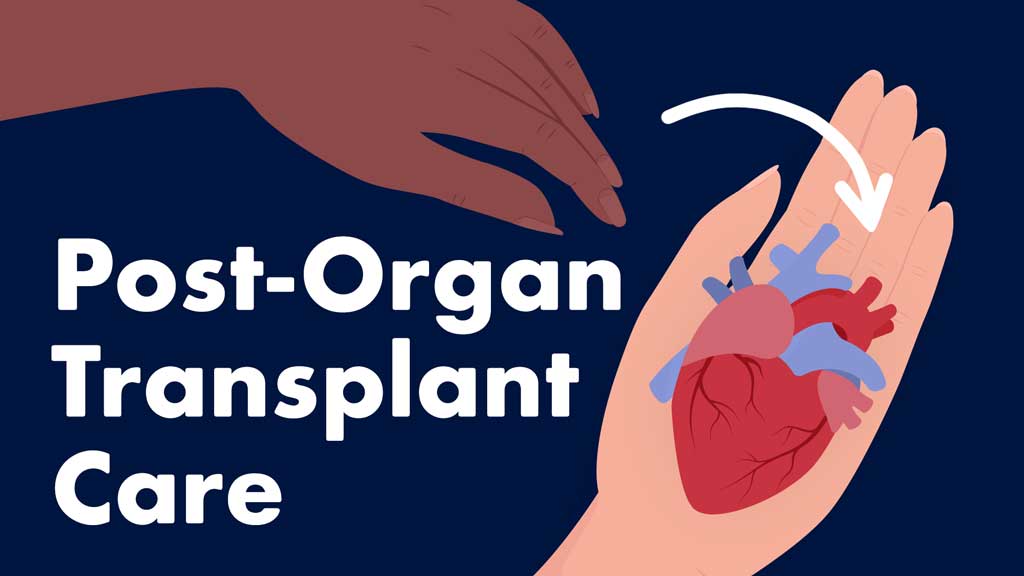What is Organ Transplantation?
Organ transplantation is when an organ is removed from one person's body (a donor) and placed into another person’s body (a recipient) (Better Health Channel 2023).
Most organ donors are deceased, but living people are able to donate a kidney, part of their liver or bone tissue (The Organ and Tissue Authority 2018; Better Health Channel 2023).
Deceased organ donors usually need to die in a hospital on a ventilator in the intensive care unit, as their organs must be in good condition in order to be transplanted (The Organ and Tissue Authority 2021).
Those who receive an organ transplant are usually seriously ill or dying from organ failure (DoHaAC 2020).
Generally, organ transplantation is considered only after other treatment options have been attempted (Healthdirect 2023).
Which Organs Can Be Transplanted?
- Kidneys
- Lungs
- Heart
- Liver
- Large intestine
- Pancreas.
(DoHaAC 2020)

Potential Benefits and Risks of Organ Transplantation For Recipients
| Benefits | Risks |
|---|---|
|
|
(NHSBT 2021; Hertl 2022)
Organ Rejection
Organ transplantation between two people who are not genetically identical is known as allotransplantation (Better Health Channel 2023).
Following allotransplantation, the recipient’s immune system might attack and destroy the donated organ because it is foreign to the recipient’s body. This is a complication known as rejection (Better Health Channel 2023).
There are two types of rejection:
- Acute rejection occurs within the first year after the transplant and can usually be treated successfully.
- Chronic rejection occurs over a prolonged period of time. The causes may not be understood, and treatment may not be successful.
(NKF 2023)
In order to reduce the risk of rejection, the recipient may need to take immunosuppressive medication for the rest of their life (Better Health Channel 2023). However, suppressing the immune system will inevitably increase the recipient’s risk of contracting infections (Healthdirect 2023).
Post-Transplant Care
The long-term success of a transplant relies on:
- The recipient having regular contact with their care team and other relevant healthcare professionals
- Taking immunosuppressive medication as directed
- Maintaining a healthy lifestyle.
(NKF 2023)
When caring for a person who has undergone organ transplantation, it’s important to consider the following:
Immunosuppressive Medicines
- Ensure the patient takes their medicine as directed. They may need to use alarms or alerts as reminders.
- Review the patient’s notes for any changes in dose or frequency.
- Escalate care if there are any issues or concerns regarding the patient’s medicine.
- Ensure all members of the care team are informed about the prescription to prevent medicine interactions from occurring.
(NKF 2023)
Infection Prevention

Those who have undergone organ transplantation will be more susceptible to infection if taking an immunosuppressive medicine. In order to reduce the recipient’s risk of infection, it’s important to follow all infection control principles. For more information, see Ausmed’s Training Module on Infection Prevention and Control.
You should escalate care if the patient displays any of the following signs:
- Sores, wounds and injuries, particularly those that aren’t healing
- Symptoms of a urinary tract infection (e.g. urinary frequency, pain or burning during urination, cloudy or reddish urine, foul-smelling urine)
- Symptoms of a respiratory infection (e.g. cough, nasal congestion, runny nose, sore throat, fever).
- Signs of sepsis.
(NKF 2023)
Increased vulnerability to infection means the recipient is also at greater risk of food poisoning. Therefore, food safety principles should always be followed, and the recipient should avoid high-risk foods such as unpasteurised milk, untreated water, and undercooked meats, fish and eggs (Transplant Australia 2023).
Infection control is especially crucial as organ transplant recipients can never be given certain live vaccines after their transplant, including MMR (measles-mumps-rubella) and varicella, leaving them more vulnerable to these illnesses if not already vaccinated (NKF 2023; AIH 2023).
Lifestyle Changes
Organ transplant recipients should maintain a healthy lifestyle by refraining from smoking, exercising regularly and eating a healthy diet (Healthdirect 2023).
Recipients should also avoid lifting heavy objects for at least eight weeks after the surgery, avoid driving for a few weeks after the surgery and avoid alcohol until advised that it’s safe to resume (Transplant Australia 2023).
Psychological Impacts
People who have undergone organ transplantation may feel a variety of emotions, both positive and negative. These might include:
- Relief and elation after successful surgery
- Optimism for the future
- Fears about the safety of the transplanted organ
- Stress about going back to work, the risk of infection, juggling frequent medical appointments, etc.
- Guilt about benefiting from death (if the donor was a deceased person)
- Feelings of obligation towards the donor, which can put pressure on the recipient
- Anxiety or depression
- Feeling overwhelmed about all of the new changes related to the transplant
- Altered mood caused by immunosuppressive medicines.
(Transplant Australia 2023; NKF 2023)
Ensure organ transplant recipients in your care have access to appropriate support to help them navigate these feelings and escalate care if necessary.
Test Your Knowledge
Question 1 of 3
True or false: Post-organ transplant, the organ recipient cannot receive certain vaccines.
Topics
References
- Australian Immunisation Handbook 2023, Table. Recommended Vaccines For People Before and After a Solid Organ Transplant, Australian Government, viewed 26 February 2024, https://immunisationhandbook.health.gov.au/resources/handbook-tables/table-recommended-vaccines-for-people-before-and-after-a-solid-organ
- Better Health Channel 2023, Organ and Tissue Transplantation, Victoria State Government, viewed 26 February 2024, https://www.betterhealth.vic.gov.au/health/conditionsandtreatments/organ-and-tissue-transplantation
- Department of Health and Aged Care 2020, About Organ and Tissue Donation, Australian Government, viewed 26 February 2024, https://www.health.gov.au/health-topics/organ-and-tissue-donation/about-organ-and-tissue-donation
- Healthdirect 2023, Organ Transplants, Australian Government, viewed 26 February 2024, https://www.healthdirect.gov.au/organ-transplants
- Hertl, M 2022, Overview of Transplantation, MSD Manual, viewed 26 February 2024, https://www.msdmanuals.com/en-au/home/immune-disorders/transplantation/overview-of-transplantation
- National Health Service Blood and Transplant 2021, Benefits and Risks of a Kidney Transplant, National Health Service, viewed 26 February 2024, https://www.nhsbt.nhs.uk/organ-transplantation/kidney/benefits-and-risks-of-a-kidney-transplant/
- National Kidney Foundation 2023, Care After Kidney Transplant, NKF, viewed 26 February 2024, https://www.kidney.org/atoz/content/immunosuppression
- The Organ and Tissue Authority 2021, How Does Donation Work?, Australian Government, viewed 26 February 2024, https://www.donatelife.gov.au/all-about-donation/how-does-donation-work
- The Organ and Tissue Authority 2018, Understanding Living Donation, Australian Government, viewed 26 February 2024, https://www.donatelife.gov.au/all-about-donation/understanding-living-donation
- Transplant Australia 2023, Leaving Hospital, Transplant Australia, viewed 26 February 2024, https://transplant.org.au/living-with-your-transplant/the-first-few-days/leaving-hospital/
 New
New 
